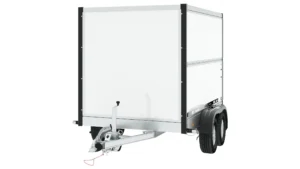The Evolution of Rough Terrain Forklift Suspension Systems
2025-07-08 04:15:31
The demand for rough terrain forklifts has surged in industries like construction, agriculture, and logistics, where uneven surfaces and unstable ground conditions are common. A robust suspension system is critical to ensuring stability, operator comfort, and load security. Recent advancements in hydraulic damping and independent wheel articulation have significantly improved the efficiency of rough terrain forklift suspension systems, reducing downtime and maintenance costs.
One of the key innovations in rough terrain forklift suspension systems is the integration of adaptive damping technology. Unlike traditional rigid setups, modern systems use sensors to detect terrain variations and adjust shock absorption in real time. This not only enhances operator comfort but also minimizes wear and tear on critical components. According to industry data, forklifts equipped with adaptive suspension experience 30% fewer mechanical failures compared to conventional models.
Another breakthrough is the use of reinforced torsion axles in rough terrain forklift suspension systems. These axles distribute weight more evenly, preventing excessive strain on individual wheels when traversing rocky or muddy surfaces. Field tests indicate that torsion-based suspensions improve load stability by up to 25%, making them ideal for heavy-duty applications. Manufacturers are also experimenting with air suspension modules to further refine ride quality and adaptability.
Durability remains a top priority in the design of rough terrain forklift suspension systems. High-strength steel alloys and corrosion-resistant coatings are now standard, ensuring longevity even in harsh environments. Industry reports show that forklifts with advanced suspension components have a 40% longer service life than older models. Additionally, modular designs allow for easier repairs, reducing operational disruptions in demanding work settings.
Looking ahead, electrification and automation are set to revolutionize rough terrain forklift suspension systems. Electric models with regenerative suspension systems can recover energy from uneven terrain, improving efficiency. Meanwhile, AI-driven predictive maintenance tools are being developed to monitor suspension health and preemptively address issues. As these technologies mature, the next generation of rough terrain forklifts will offer unmatched reliability and performance.








